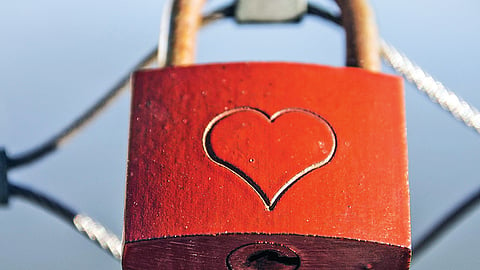

We live in perilous times. The world is seeing wars and war-like situations all over the world for the first time since the end of World War II. We, in India, had our challenging times a few weeks ago, and conflicts are happening in literally every continent with major flashpoints and a whole lot of other fires that are not really
getting global attention because of their more limited impact. But the fact remains that we may be the closest to a global crisis than we have ever been, in close to a century. Whether one is an Iranian in love with an Israeli, an Indian with a Pakistani, Chinese with a Taiwanese, or a Rwandan with a Congolese, when things get to a head, our different loyalties get called into question.
Love is supposed to be a healing factor, it is supposed to help us connect to our humanity beyond our differences. In times of peace, we even celebrate such love across borders and even encourage it, but when conflicts erupt, these are the very relationships that get called into question. When loyalties clash and the larger world outside demands allegiance to specific identities, the intangible bond of love can feel very fragile. The pressure to choose sides, to abandon the person who represents the ‘other’, becomes immense.
This is when the true strength of love is tested. It requires an extraordinary commitment to not just the individual but the idea of love itself, and an intentional, stubborn choice of connection over division, even when the whole world seems to breathe hate.
Love can persist in a safe bubble we create for ourselves. We can ignore family messaging groups, live in neutral spaces, keep to safe topics of conversation and so on. This can work during regular periods of relatively low unrest, but when there is all-out literal war, genocide, and the kind of massive information war that we have been seeing lately, these rules are very hard to follow. Each individual is then battling not only external societal pressures but also internal conflicts with deeply ingrained senses of belonging and duty conflicting with personal affections. Some might choose more active joint defiance, standing together against the hate, choosing to call out their love publicly at the risk of being isolated, ridiculed or worse, but that is very hard.
The fact is, that protecting love in times of conflict demands an all-consuming intent and the constant conscious effort to keep it going. We cannot ignore the world, but need to actively acknowledge the pain and fear. We need to be present for each other’s suffering, even while actively reinforcing love, mutual respect, understanding, and hold a vision of an undivided world where there are no boundaries for love to transcend. Love needs to be a daily reaffirmation that despite whatever wars rage outside, inside, in the heartspace we share, it is paradise.
(The writer’s views are personal)